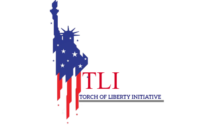In Reykjavik, Iceland, a local man known as the “bike whisperer,” Bjartmar Leósson, dedicates his efforts to recovering stolen bicycles without resorting to anger or involving law enforcement against the thieves. Instead, the police often reach out to him when someone reports a missing bike. In a nation with only one high-security prison, Leósson exemplifies a focus on rehabilitation over punitive measures.
His started this years ago when his own bike was stolen, leading him to believe that many thefts were linked to a nearby homeless shelter. He observed police passing by stolen bikes left in front of the shelter without taking action. Reflecting on his frustration, Leósson stated, “I was very angry, they were angry. But then I started to think: OK, it doesn’t matter, I can scream until I’m blue in the face, nothing’s going to change. So I decided to try to level with them and just talk to them.”
This shift in perspective transformed former thieves into partners in a city-wide initiative to combat bike theft. With the help of the unhoused community, they track down stolen bikes and return them to their owners through Leósson’s Facebook group, “Bicycle stuff etc lost, found or stolen,” which boasts over 14,000 members.
While Reykjavik does not have the same cycling culture as Amsterdam—where only a small percentage of trips are made by bike—there has been a notable decrease in bike thefts from 569 incidents to 404 over two years. Additionally, a government initiative is underway to develop off-thoroughfare cycling routes.
Reykjavik’s police chief, Guðmundur Pétur Guðmundsson, praised Leósson’s efforts: “Bjartmar Leósson is doing a great job finding and collecting bikes that have been stolen. Police often guide victims of theft to various sales groups and his [Facebook] group just to increase the likelihood of finding the bike again.”
Leósson has identified addiction as a primary driver behind bike thefts, with some individuals stealing bikes to fund their drug habits. He has also played a role in helping some of these individuals find paths toward recovery.

